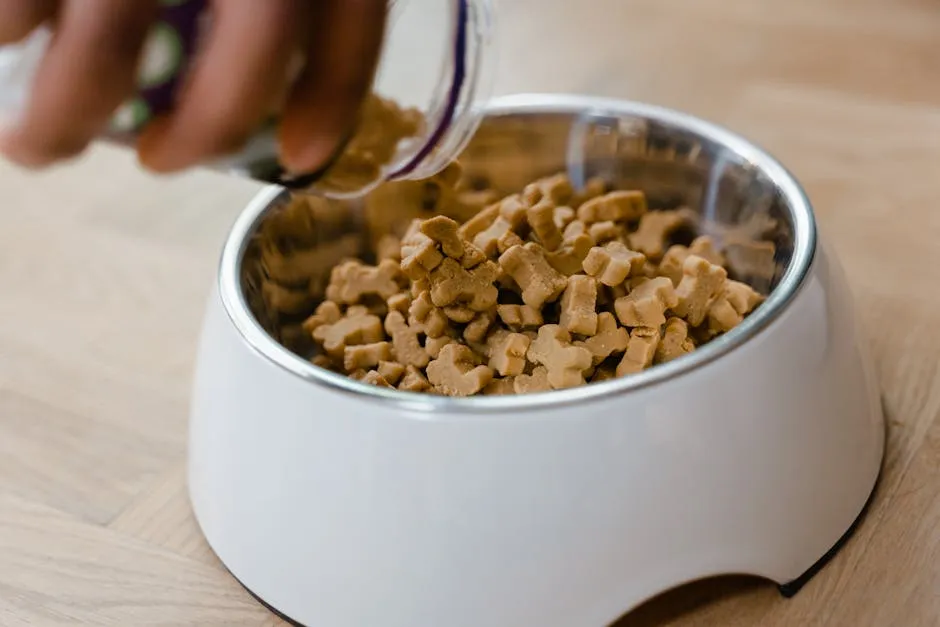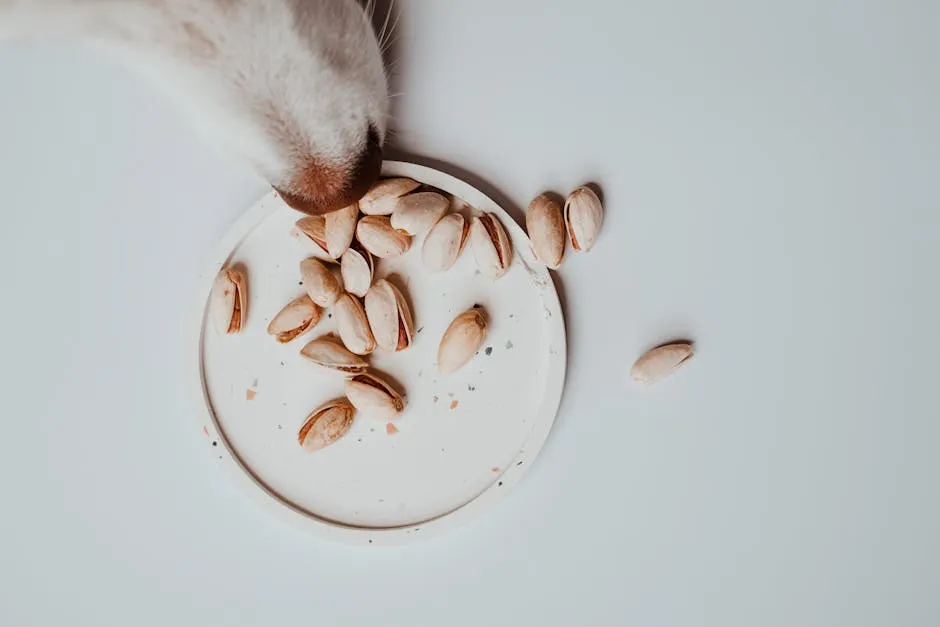Introduction
You might love snacking on walnuts, but can your dog join in? Walnuts are popular among humans for their health benefits and delicious crunch. However, many pet owners wonder, “Are walnuts safe for my furry friend?” This article aims to clarify the safety of walnuts for dogs and highlight any risks involved.
Speaking of snacks, if you’re looking for a healthier option for your pooch, consider a Dog Treats Variety Pack. It’s a delightful mix that will have your dog wagging their tail in excitement!
Summary and Overview
When it comes to dogs and walnuts, caution is key. Not all walnuts are created equal. English walnuts are less harmful but still not the best treat option. Black walnuts, on the other hand, are toxic and must be avoided entirely.
Potential health risks include gastrointestinal distress and toxicity. Dogs may experience vomiting, diarrhea, or even more severe symptoms if they consume black walnuts. If your dog accidentally eats walnuts, monitor them closely for any signs of illness. Overall, it’s best to refrain from feeding walnuts to your dog. Stick to safer snacks to ensure their health and happiness.

For more information on managing your dog’s health, you might want to check out dog diarrhea.
The Different Types of Walnuts
English Walnuts: Are They Safe?
English walnuts are generally safe for dogs, but moderation is key. These nuts offer some nutritional benefits, like antioxidants and omega-3 fatty acids. However, their high-fat content poses risks. An ounce of walnuts contains about 18 grams of fat and 190 calories, which can upset your dog’s stomach if consumed in excess.
Overconsumption may lead to gastrointestinal issues, including vomiting or diarrhea. It’s best to keep servings small—just a few pieces occasionally. If your dog shows any signs of distress after eating walnuts, consult your vet before introducing any new foods to your dog’s diet.

Black Walnuts: A Serious Danger
Black walnuts are not safe for dogs, and they should be avoided entirely. These nuts contain a toxic compound called juglone. Ingesting even a small amount can lead to serious health issues. Symptoms of black walnut poisoning include vomiting, diarrhea, and tremors.
If your dog consumes black walnuts, contact your veterinarian immediately. The incidence of walnut poisoning is significant, and prompt action is crucial. Emergency response can save your pet from severe complications. Always monitor your dog closely for any signs of distress after they have consumed any type of walnut. If you suspect your dog has consumed black walnuts, seek veterinary assistance right away.
Meanwhile, to keep your furry friend safe, consider investing in a Pet First Aid Kit. It’s a lifesaver when emergencies happen!

Health Risks Associated with Walnut Consumption
Gastrointestinal Issues
Walnuts can upset your dog’s stomach. Symptoms may include vomiting and diarrhea. Larger dogs might tolerate small amounts better than smaller breeds. Dogs with pre-existing conditions are at higher risk. Pancreatitis is a significant concern for many dogs, and it has become increasingly prevalent. In fact, the incidence of pancreatitis in dogs has risen over the years. It’s crucial to monitor your dog closely after any unusual food intake. If you notice any signs of gastrointestinal distress, consult your veterinarian.
To help with their digestive health, consider adding some Dog Vitamins and Supplements to their diet. It could make a world of difference!

Toxic Mold and Mycotoxins
Moldy walnuts pose serious health threats to dogs. Walnuts can often harbor Aspergillus flavus, a type of mold that produces harmful mycotoxins. These toxins can lead to severe health issues, including neurological symptoms. Dogs ingesting moldy walnuts may experience symptoms such as tremors, seizures, vomiting, and loss of appetite. The incidence of mycotoxin-related illnesses in dogs is concerning, making it essential to inspect any walnuts before giving them to your pet. Always check for moldy nuts to ensure your dog’s safety. If you suspect your dog has consumed moldy walnuts, contact your veterinarian immediately.
To avoid any mold-related issues, consider keeping your dog’s food fresh with a Dog Food Storage Container. It keeps their treats safe and secure!

What to Do If Your Dog Eats a Walnut
Immediate Actions to Take
If your dog consumes a walnut, stay calm and monitor them closely. Look for symptoms like vomiting, diarrhea, or lethargy. If you notice any of these signs, contact your veterinarian right away. It’s essential to have your vet’s contact information handy. For emergency situations, consider having the Pet Poison Helpline on speed dial at (855) 764-7661. Remember, prompt action can make a significant difference in your dog’s health. Statistics show that quick veterinary responses can improve outcomes in emergency cases.

Long-term Considerations
Establishing a safe diet for your dog is vital for their health. Instead of walnuts, consider healthier treat options like carrots, apples, or blueberries. These alternatives provide essential nutrients without the risks associated with walnuts. Balanced nutrition is crucial for your dog’s well-being, helping them stay active and healthy. Dietary recommendations suggest that treats should not exceed 10% of their daily caloric intake. Explore safe treat options for your furry friend to ensure they enjoy tasty snacks without health concerns.
For a fun way to keep your dog mentally stimulated, check out an Interactive Dog Puzzle Toy. It’s a great way to engage their minds while keeping them away from those pesky walnuts!

Healthier Alternatives to Walnuts for Dogs
If you’re looking for safe and nutritious treats for your dog, consider these alternatives. Instead of walnuts, you can offer peanuts and cashews. These nuts are generally safe in moderation. However, always choose unsalted options to avoid excess sodium.
Fruits and vegetables also make excellent snacks. Carrots are crunchy and low in calories, perfect for dental health. Apples (without seeds) provide fiber and vitamins. Blueberries are rich in antioxidants, while sweet potatoes are nutritious and easy to digest. You can read more about can dogs eat carrots for additional insights.

Incorporating these treats into your dog’s diet can provide essential nutrients without the risks associated with walnuts. Remember, treats should only make up about 10% of your dog’s daily caloric intake. Discover more healthy snacks for dogs on our blog. And hey, while you’re at it, don’t forget to grab some Organic Dog Snacks for guilt-free munching!

Conclusion
In summary, walnuts are not ideal for dogs. While English walnuts can be safe in small amounts, they pose risks due to their high fat content and potential for gastrointestinal distress. Black walnuts are particularly dangerous and should be entirely avoided due to their toxicity.
Choosing healthier alternatives is crucial for your dog’s well-being. Always consult with a veterinarian before introducing new foods into your pet’s diet. Keeping your furry friend safe and happy is the ultimate goal. And if you’re ever on the go, a Dog Water Bottle is a must-have to keep them hydrated!
Please let us know what you think about our content by leaving a comment down below!
Thank you for reading till here 🙂
All images from Pexels





